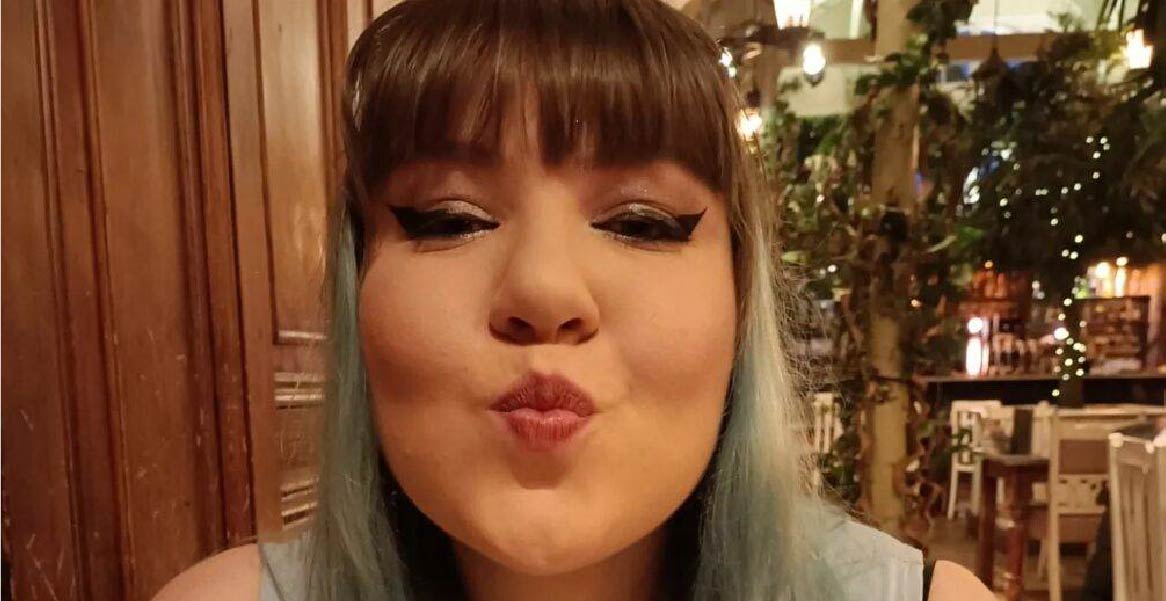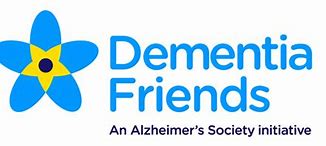Site Navigation
Stroke at 25

You are never too young to have a stroke
Sunday 29th October is #WorldStrokeDay. A day dedicated to raising awareness about stroke, its prevention, and the importance of swift action when a stroke occurs. This day serves as a platform for medical professionals, researchers, advocates, and communities worldwide to come together and educate about the risk factors associated with stroke, as well as the life-saving measures that can be taken.
In honour of this day, we are sharing Maggie’s story. Who was only 25 years old when she first had a stroke. Showing that a stroke can happen at any age, and you are never too young to have a stroke.

“If it wasn’t for your age, I’d think you were having a stroke.”
“I had my stroke at 25 years old in Dereham, Norfolk. Before my stroke I was achieving a lot. I was on track to getting a manager role and was about to start two qualifications through work. During lockdown I had done the opposite to most people and actually started losing weight. By the time I had my stroke in January 2022 I had lost over three stone and I was the healthiest and happiest I had been in years! All that was left was finding myself a boyfriend and I’d have ticked all the boxes.
In the week leading up to my stroke something definitely wasn’t right. I had started taking the combined pill to help with polycystic ovarian syndrome.
At the time I thought it was just the medication settling in, but I was late to work three times in a week and I was getting quite emotional and muddled. I told my manager I’d call the doctor on the Monday morning and stay home and rest all weekend. I didn’t make it to Monday and fortunately I didn’t stay home either. I live alone, so if I had of stayed home on that Saturday, I might not even have been typing this! This was a hard thought to get my head around.
Stoke symptoms
On that Saturday morning I decided I was feeling a little better and I wanted to go and see my friend, who wanted help painting a pub/club she had taken over. I met her for coffee, we chatted, and we had a look around the pub. I bragged about how well I was doing. At this point my memory goes fuzzy. I remember my friend asking me if I was OK and saying that I looked funny. The next thing I know I’ve gone from a bar stool to a sofa. I heard my friend say:
‘If it wasn’t for your age, I’d think you were having a stroke’.
The second she said that she realised that was actually exactly what was happening!
My parents were then called and arrived before the ambulance, which took just under an hour. I couldn’t move my left side; my face had drooped, and I had slurred speech. I remember thinking if someone could just touch my hand, I’d remember how to use it. In reality though I was oblivious. I was protesting I was fine, and I was going to walk home. I was sent to Norfolk and Norwich hospital for thrombolysis, two CT scans and one MRI. The clot didn’t clear as quickly as they wanted, so I was sent to London to operate. Fortunately for me the clot cleared on my way there.
I was sent back to the hospital the next day. I stayed for five days and they worked out that I am one of the “1 in 4” who was born with a PFO (Patent Foramen Ovale or ‘open flap in my heart’). It should have closed when I took my first breath. It made no difference to my health or the strength of my heart, but it allowed a route to my brain for the clot the combined pill had caused.
If I hadn’t have taken a breath at the moment I did, then the clot would have gone into my lungs and caused a pulmonary embolism (honestly, I haven’t looked at what that is enough to know if that’s better or worse).
A patent foramen ovale, or PFO for short, is a hole between the two receiving chambers (atria) of the heart and is found in around 25% of the population.

A long recovery
I was discharged from hospital without much to go on. I was told I showed no cognitive or physical problems, apart from slight weakness on my left side. However, I found after I walked further than the short distance round the ward, I was struggling – so I bought myself a walking stick. I thought because I was told I was fine, then I must be. I pushed through the problems I was having. It was explained to me that the tiredness was post-stroke fatigue, and this was likely improved, but I don’t think I understood the gravity of how this would impact my life.
I went back to work after just over a month, only twice a week, for four hours at first, but looking back even that was too much. I was so focused on getting “back to normal” – it took me a while to realise that I wasn’t going to get back to what was normal for me – not quickly anyway.
Different Strokes
I found myself crying a lot! I was told about Different Strokes by the hospital, so I joined the Facebook group for survivors, and I found out about a group that meets up once a month in Dereham.
I posted on the group explaining my frustration and how I kept being told because I’m young that I would bounce back. I asked when I wouldn’t need the stick anymore etc., I hated it!
Someone told me to grieve my old life. I may get back to what seemed normal for me, but in the meantime, it will have to be my “new normal”. It did feel like a grieving process. I cried a lot, and I missed my life. I missed feeling accomplished at work, I missed the gym and enjoying weekend nights out. Then I felt angry that this had happened to me. I was angry at the doctor who gave me those meds, and I was angry I didn’t stop taking the meds when I started feeling unwell.
Eventually, I accepted it. I started to realise life wasn’t over – and seeing the little improvements, like being able to walk for longer, getting less out of breath and having more energy for socialising – that helped.
Six months after my stroke I had a review. A stroke nurse evaluated all the things I was struggling with and was shocked I hadn’t had any support yet. I finally felt validated that I wasn’t being lazy or just not trying hard enough. I have finished physio but still use my stick. I’m using the exercises they gave me to continue to strengthen my left side, and I also see an occupational therapist – which has been amazing. That helped me understand that my verbal memory had been affected, and I was given advice for managing sensory overload and my fatigue.
In August 2022 I had the hole in my heart closed. It is called a PFO closure. I understand they go through an artery in the groin and put a device in the hole. I was terrified right up until the point I was sedated. The operation went well and I went home the same day and I felt like I was finally safe from another stroke. I wasn’t able to come off the blood thinners through, which I felt made my fatigue worse. I am now on antiplatelet medication called clopidogrel. I will be on this medication for the rest of my life now.

The new normal
Having this operation was a turning point. I felt safe from having another stroke and safe to continue getting better. I still have very bad anxiety. I went to A&E twice for chest pains, nausea, and dizziness. I found out three GP visits later that these were anxiety attacks. Having had a stroke, I think the simple answer of an anxiety attack was overlooked, I am now in therapy to aid this. I am lucky enough to have private healthcare through my job, which allowed me to get access to therapy and my operation so fast.
I have been going to sewing classes to help improve my left hand, as I have full movement but it’s a bit slow and stiff. As well as just giving myself another hobby to enjoy, I play role playing games on the weekend. I also have a drawing challenge with my friend, where we ask friends for prompts and take turns drawing them. These small things have meant a lot to me, giving me the social element, I thought I had lost a little of, and helping me feel productive again.
Life after a stroke
It’s been over a year since my stroke, and I have gained weight due to not being able to exercise and not always picking the healthy option when I am fatigued. I have not yet managed to return to work full time, but thankfully they are letting me increase my hours, slowly.
I found myself an incredible boyfriend just over a month after my stroke, and I’m setting goals and new career aspirations. I still struggle with fatigue, sensory overload, mobility and concentration – but in comparison to where I was this time last year I have improved by miles! I am proud of how far I have come and how I have been too stubborn to give up.
As a young stroke survivor I want people to know strokes aren’t just for older people. Check your family history and please check the side effects of medication. If I had of done this maybe I wouldn’t have had my stroke. Also, I don’t feel my age means I will bounce back. If nothing else a brain injury recovery seems almost always a long one.”

You can help others just like Maggie
Different strokes were a lifeline for Maggie when she had no one else to turn to. They helped her grieve her old life and accept the new normal.
They need your support now more than ever to make sure they are still here in the future for younger people who have a stroke. For only £1 per week, you can play make a smile lottery to give them a regular and reliable income.















